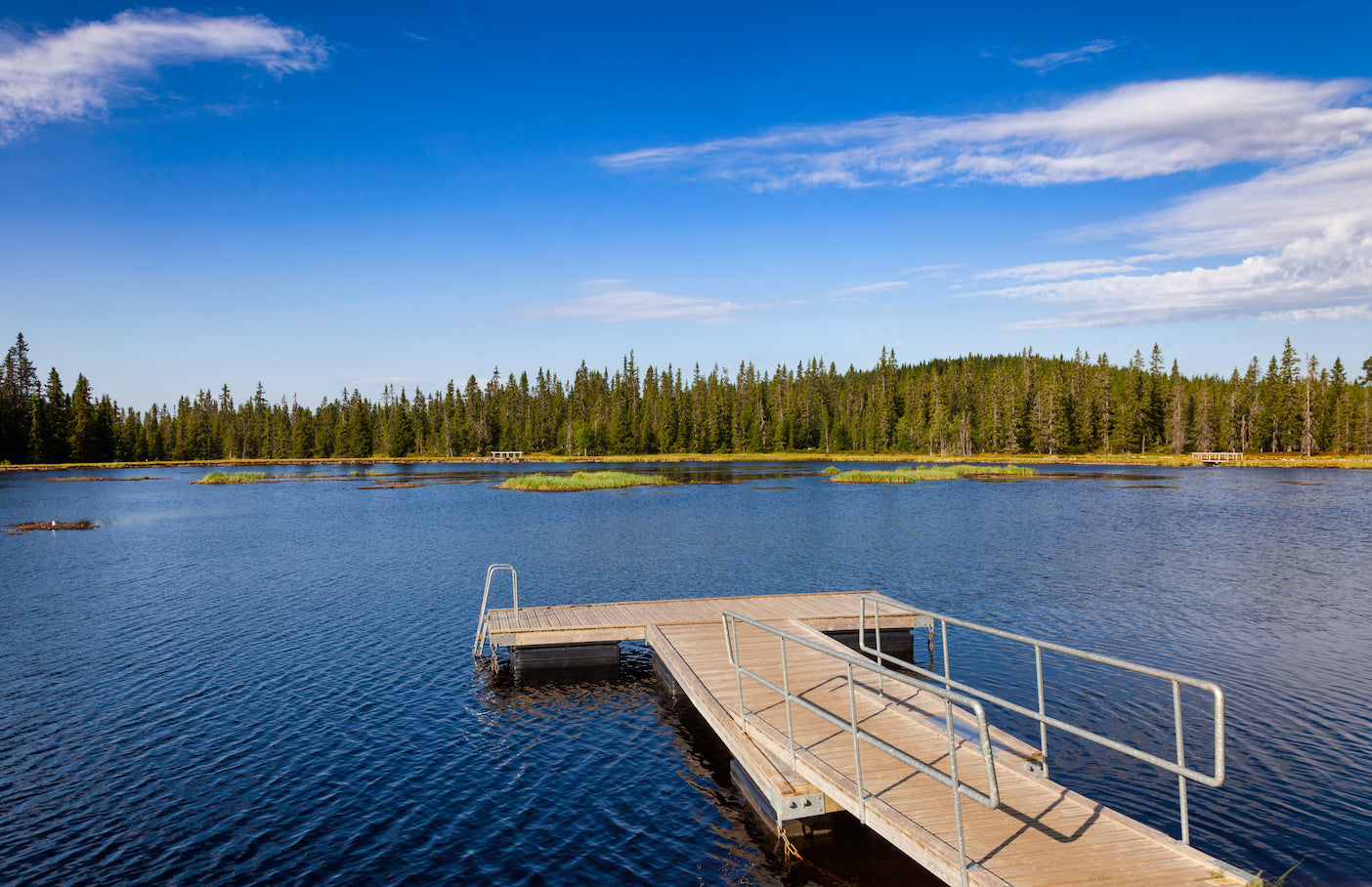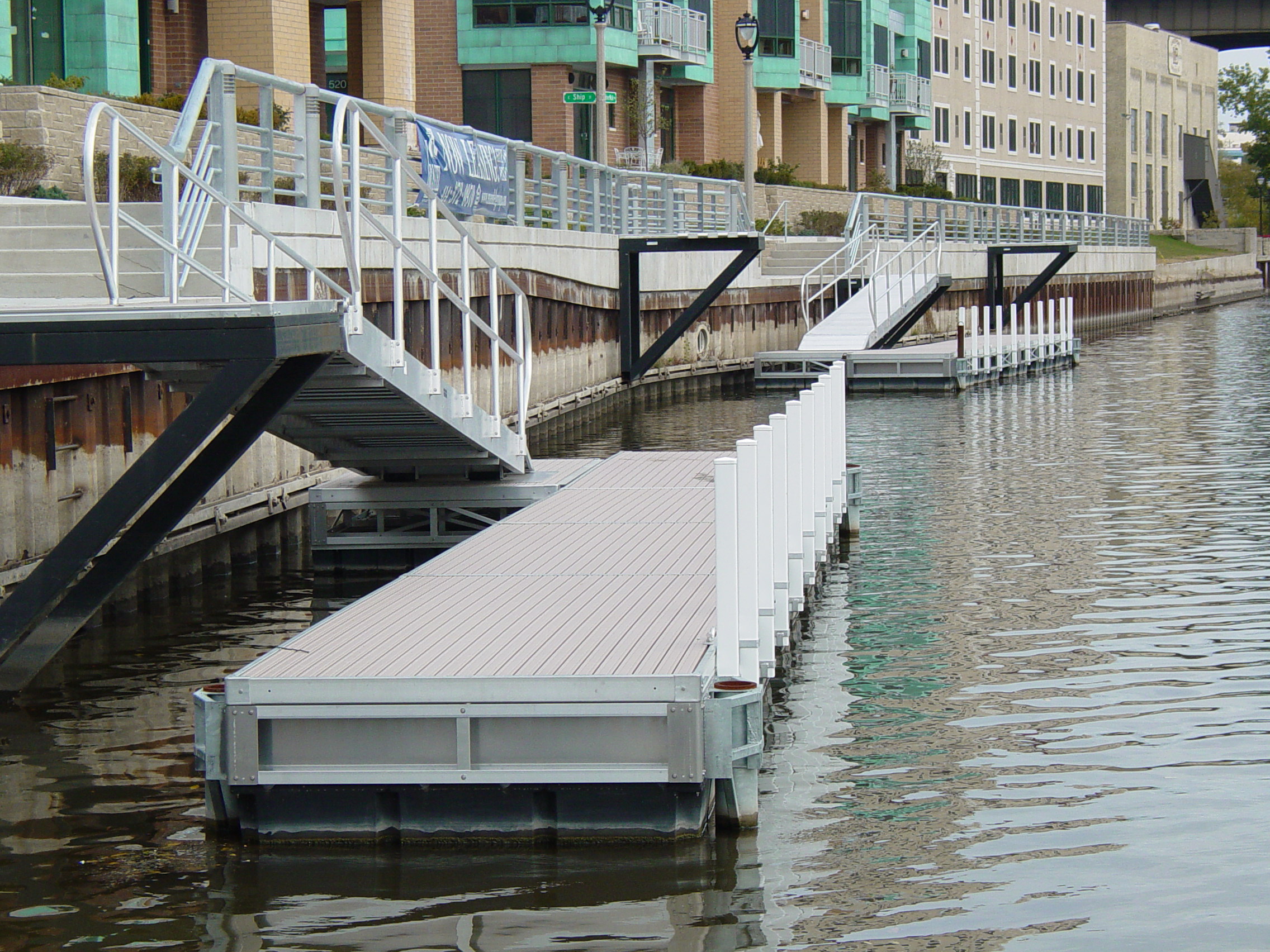Exactly How Floating Dock Company Expertise Can Elevate Your Waterfront Experience
Exactly How Floating Dock Company Expertise Can Elevate Your Waterfront Experience
Blog Article
Floating Docks: The Perfect Choice for Versatile Water Gain Access To
Floating docks existing an engaging solution for a range of water accessibility requires, offering flexibility that goes beyond standard mooring alternatives. Their ability to adapt to rising and falling water degrees while making certain security and security makes them specifically advantageous for both leisure and industrial applications. In addition, the modular nature of floating docks helps with personalization, satisfying certain demands. However, the subtleties of setup and upkeep, together with the variety of applications, call for a closer assessment to completely appreciate their potential advantages and ramifications for river access methods.
Advantages of Floating Docks
Floating docks offer numerous benefits that improve water access for numerous applications. Their capability to fluctuate with changing water degrees makes them particularly useful in settings with rising and fall tides or seasonal variants. This adaptability makes certain that vessels can quickly moor without problem for the water's depth, providing a reliable system for recreational, industrial, and commercial usages.
In addition, floating docks are commonly built from resilient products that stand up to corrosion, making them appropriate for long-lasting usage in aquatic environments. Their setup is normally much less invasive than conventional fixed docks, decreasing the ecological influence and facilitating quicker deployment (floating dock services). This adaptability allows for easier relocation or reconfiguration according to customer needs or environmental changes
Safety is an additional key benefit; floating docks can supply steady gain access to for individuals getting off or boarding from watercrafts and lower the risk of accidents related to unstable surface areas. Furthermore, they can be developed to suit a range of accessories, such as cleats and fenders, enhancing functionality. Overall, floating docks represent an effective remedy for enhancing water gain access to across varied markets while promoting safety and security and ecological sustainability.

Kinds of Floating Docks
Different sorts of floating docks deal with various needs and atmospheres, each made with particular attributes to optimize functionality. One of the most usual types include modular docks, which are composed of interlocking sections that enable very easy customization and growth. These docks are excellent for recreational use, as they can be customized to fit numerous boat dimensions and water problems.
An additional popular option is the stationary floating dock, which remains anchored in location yet drifts with changing water levels. floating dock services. This kind is especially matched for locations with minimal tidal fluctuations, offering steady gain access to for angling or swimming. Additionally, there are drive-on docks, which include a sloped design that enables watercrafts to conveniently drive on and off, making them appropriate for personal watercraft and smaller vessels
For industrial applications, durable floating docks are readily available, built from enhanced products to hold up against substantial lots and rough aquatic environments. Environmentally friendly floating docks use sustainable products and layouts to lessen environmental influence, often including functions like greenery to support neighborhood wild animals. Comprehending the numerous kinds of floating docks ensures that customers can choose the most ideal service for their specific needs.
Setup Process Review
A successful installation of floating docks needs careful preparation and attention to information to guarantee optimum performance and safety and security. The first step entails evaluating the website conditions, consisting of water depth, present, and potential challenges. This assessment notifies the selection of the proper dock materials and style customized to the certain environment.
Next, getting required authorizations is important, as many territories have guidelines concerning building and construction on water bodies. When approvals are secured, the setup can continue. Begin by preparing the structure, which may include anchoring systems or pilings customized to the dock kind and neighborhood conditions.
Complying with the structure setup, put together the dock sections according to supplier specifications. Guarantee that all components are securely fastened and lined up to hold up against environmental tensions. Setting the dock in the designated location, ensuring it is level and steady.

Maintenance Tips and Ideal Practices
After the installation process is total, ongoing upkeep plays a crucial function in guaranteeing the longevity and functionality of floating docks. Regular examinations must be carried out to identify any kind of indicators of damage, wear, or damage - floating dock company. Inspect for any type of loosened fittings, splits, or splitting up in the dock sections, as these can endanger structural honesty
Cleaning up the dock is vital to get rid of debris, algae, check these guys out and other build-up that can affect its look and security. Utilize a mild stress laundry occasionally to maintain sanitation without causing damages to the surface. Furthermore, using a protective sealer every few years can help boost longevity and withstand you can try here ecological wear.
Focus on the mooring lines and supports, ensuring they are totally free and secure from rust. Change any degraded elements without delay to avoid threats. Seasonal adjustments may additionally be necessary; during severe climate condition, reinforcing the dock or repositioning can stop damages.
Applications for Floating Docks
Floating docks serve a wide variety of applications, accommodating both commercial and leisure requirements. In entertainment setups, they provide seamless access to waterways for tasks such as boating, fishing, and swimming. Their adjustable nature permits setup in differing water degrees, making certain secure and stable accessibility no matter tidal variations.
Readily, floating docks are indispensable for marinas and beachfront companies. They promote the docking of vessels, enabling efficient loading and unloading of goods. Their modular design allows for easy development or reconfiguration to suit transforming company needs, making them perfect for boat services, excursion operations, or fishing charters.
Additionally, floating docks are made use of in ecological applications such as water research study and habitat restoration. They can function as systems for clinical research studies, checking water top quality, or carrying out wildlife studies without troubling sensitive communities.
In industrial contexts, floating docks are employed in building tasks, supplying access to hard-to-reach locations for devices and personnel. Their versatility, sturdiness, and minimal influence on the atmosphere make them an optimal selection for a wide variety of applications, boosting both performance and ease of access in various water-based atmospheres.
Conclusion
In verdict, floating docks stand for an optimal service for diverse water access needs, owing to their flexibility, durability, and modular layout. Floating docks sites offer as a valuable asset for entertainment, commercial, and environmental jobs, ensuring dependable accessibility to waterways and promoting lasting methods in marine settings.
Floating docks existing an engaging option for a range of water gain access to requires, offering versatility that transcends traditional mooring options.Floating docks deal many advantages that boost water accessibility for numerous applications. On the whole, floating docks represent an effective solution for boosting water accessibility throughout varied industries while promoting safety and ecological sustainability.
An additional prominent choice is the stationary floating dock, which stays anchored in place but drifts with transforming water levels.In verdict, floating docks stand for an optimum service for diverse water accessibility needs, owing to their adaptability, resilience, and modular layout.
Report this page